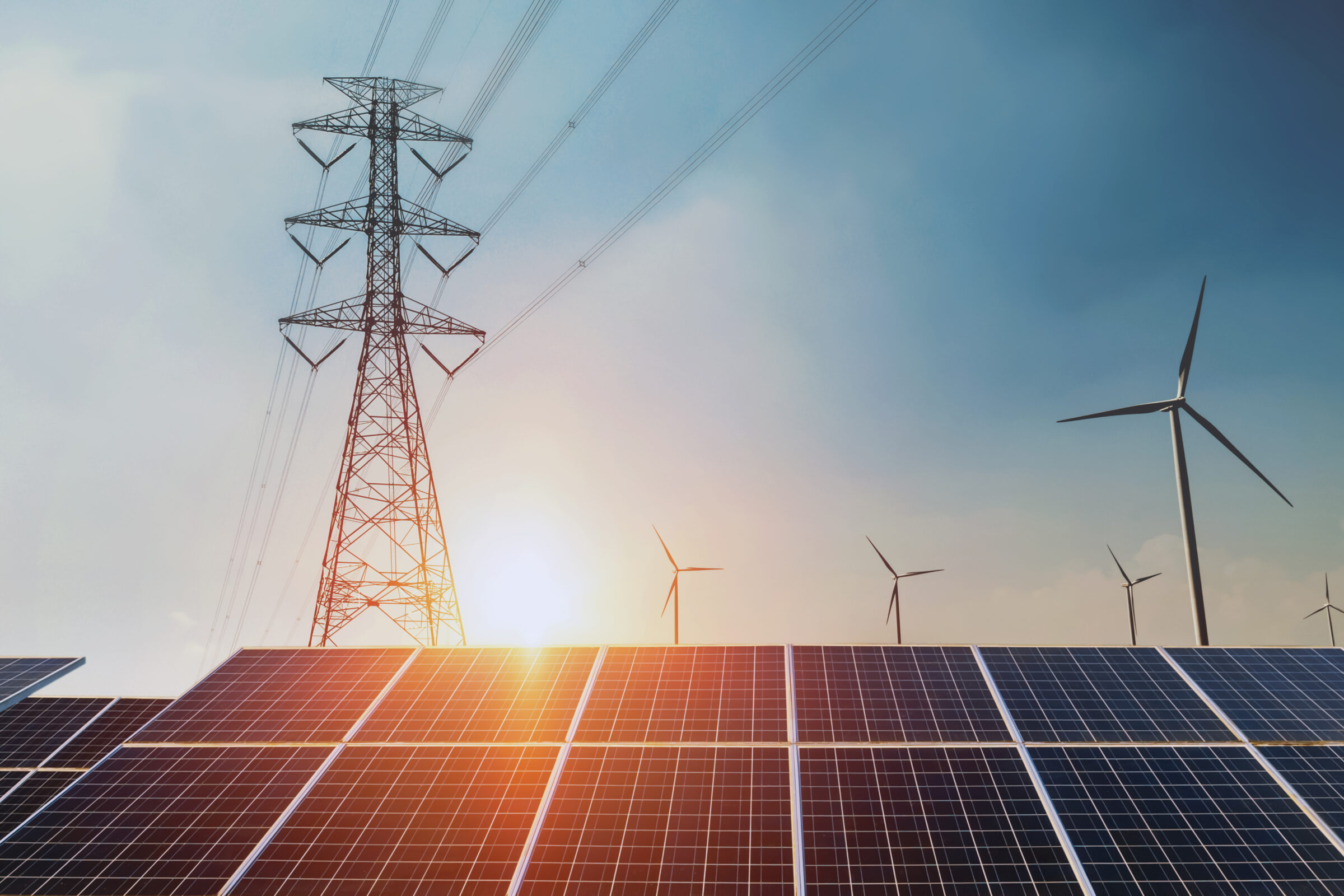- Trade & Supply Chain
- Comments & Testimony
ACORE Comments on Promoting Supply Chain Resilience
April 22, 2024
Via Electronic Submission
Office of the General Counsel
Office of the United States Trade Representative
600 17th Street NW
Washington, D.C. 20508
Comments in Response to Request for Public Comment on Promoting Supply Chain Resilience [Docket #: USTR—2024—0002]
Dear Acting General Counsel Millan:
The American Council on Renewable Energy (ACORE) appreciates the opportunity to respond to the Office of the United States Trade Representative’s request for comments on promoting supply chain resilience.
ACORE is a 501(c)(3) national nonprofit organization that unites finance, policy, and technology to accelerate the transition to a carbon-free energy economy. ACORE’s membership spans the entire energy value chain including clean energy developers, institutional investors, corporate buyers of clean energy and environmental attributes associated therewithin, manufacturers, electric power generators, retail energy providers, and other stakeholders. ACORE member companies collectively hold $24.7 trillion in assets. In 2023, roughly 85 percent of the booming utility-scale U.S. renewable growth was financed, developed, owned, or contracted for by ACORE members.
The transition to a carbon-free energy economy presents a generational opportunity for U.S. leadership in innovation and technology, strengthening our national security, and promoting just, equitable, and broad-based economic growth that can benefit every state and community. Recent domestic federal investments under the Inflation Reduction Act (IRA), Bipartisan Infrastructure Law, and others have provided strong domestic support that is helping to drive capital allocation decisions across the private sector toward meeting that promise. U.S. trade and investment policies under the purview of the USTR and the White House Council on Supply Chain Resilience should be focused on sustaining this progress.
Progress to Date
In June 2023, ACORE released its sixth annual Expectations for Renewable Energy Finance report.1 For this annual report, ACORE surveys companies that actively develop or finance U.S. renewable energy projects about their companies’ plans for the year and their outlooks for growth over the next three years.
The survey results represent the near- and mid-term outlooks of some of the most prominent companies in the sector. The report also reflects companies’ expectations for the availability of project financing sources in a post-IRA implementation landscape, including transferability, direct pay, and traditional tax equity.
The survey found that while investors and developers remained concerned by many of the same headwinds that existed before the IRA’s enactment – including grid-related issues, supply chain challenges, trade restrictions, and tax equity constraints – most investors said they planned to increase their activity in the U.S. renewable energy sector compared to the prior year. In fact, 84% of investors reported planning to increase their U.S. renewable energy investment by 5% or more. In addition, investors unanimously expected the U.S. to increase in attractiveness for renewable energy investments in 2023-2026 compared to other countries – the first time 100% of surveyed investors reported such an increase in sentiment.
Since ACORE’s report was issued in June of 2023, additional key regulatory guidance has been issued and data available through the end of 2023 is encouraging. In 2023 the U.S. added a record 31.4 gigawatts (GW) of new wind, solar, and storage capacity,2 and renewable energy sources contributed a record-setting 24 percent of total U.S. power generation.3 Over $300 billion in energy transition financing was deployed in 2023 on a range of clean energy technologies.4
ACORE believes that accelerated clean energy growth provides an opportunity to revitalize American manufacturing. In fact, according to Business Council for Sustainable Energy/BloombergNEF (BCSE/BNEF) data, over $123 billion has been announced for over 100 new clean energy domestic manufacturing facilities, including 34 for battery production alone.5 Supported by strong policy and enforcement, the U.S. can rise to a place of global leadership in renewable energy manufacturing, which will create good-paying jobs, lower costs for American businesses, and bolster strategic partnerships with international allies for decades to come.
These investments, as well as additional investments in modernizing our electricity grid, reforms to siting and permitting, and addressing interconnection queue delays will help to ensure that our nation continues to have access to affordable, reliable, and clean electricity. This is particularly urgent given the increasing demand forecasts necessary to sustain our global leadership in high-technology industries and activities such as artificial intelligence and further digitize our economy and way of life in the 21st century.
Trade and Investment’s Role in Sustaining Progress
The IRA provides a level of certainty that ACORE members have been seeking, and that certainty has catalyzed substantial investment and progress in the sector. However, a decarbonized electricity grid will consist of numerous renewable technologies, including some with components sourced globally. Clean energy supply chains must satisfy near-term procurement imperatives while upholding the standards of integrity and sustainability that our sector demands, especially as recent landmark legislation unlocks new federal incentives to grow our domestic supply.
Growth in domestic manufacturing must be paired with trade policies that promote U.S. competitiveness and ensure the availability of key inputs. Today, and even with domestic manufacturing ramping up across all clean energy technologies, there remains a significant imbalance between the amount of domestically produced solar, wind, and battery technologies. This deficit is expected to be significantly reduced over the next two years as the factories that have been incentivized by the advanced manufacturing tax credit (AMTC) and other provisions such as the domestic content bonus adder become operational. During this period, it is critical that U.S. trade actions be balanced with the needs that investors, developers, and buyers of clean energy projects will have to import products as domestic manufacturing output scales up. As we have seen repeatedly over the past eight years, tariffs and duties have been ineffective at scaling manufacturing, but they can increase U.S. consumers’ costs, result in lost jobs, and significantly delay or cancel clean energy projects.6
ACORE’s research and analysis supports the minimization of tariffs, the use of Defense Production Act authorities (with adequate congressional funding), and other solutions to help spur the growth of our domestic manufacturing base.
In addition, given the dynamic and sometimes volatile global security and geopolitical context the Administration’s work to engage international allies and partners is a welcome and necessary approach to developing secure global supply chains. Efforts to solidify commitments with international partners that serve to de-risk supply chains, address unfair trade practices including overcapacity, and provide U.S. market participants with clarity and certainty with respect to geopolitical and trade matters will help to sustain the impressive progress being made domestically.
ACORE and our members look forward to working with you to strengthen, shore up, and secure clean energy supply chains. If you have questions about these comments, please contact Lesley Hunter at hunter@acore.org.
/s/ Lesley Hunter
Lesley Hunter
Senior Vice President, Policy & Engagement
American Council on Renewable Energy
1150 Connecticut Ave NW, Suite 401
Washington, D.C. 20036
hunter@acore.org
Author
ACORE Team Member
2 https://bcse.org/market-trends/
3 https://www.eia.gov/outlooks/steo/pdf/steo_full.pdf
4 https://bcse.org/market-trends/
5 Ibid.
Join leaders from across the clean energy sector.

What will our next 20 years look like? Here’s the truth: they’ll be better with ACORE at the forefront of energy policy.
Shannon Kellogg
Amazon Web Services (AWS)


